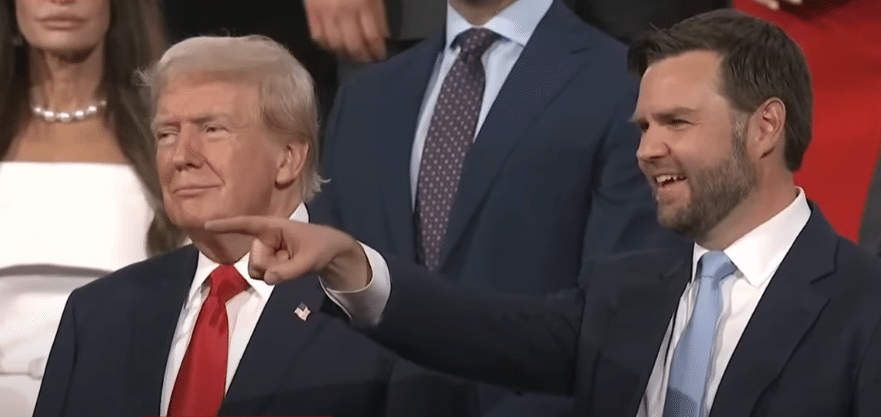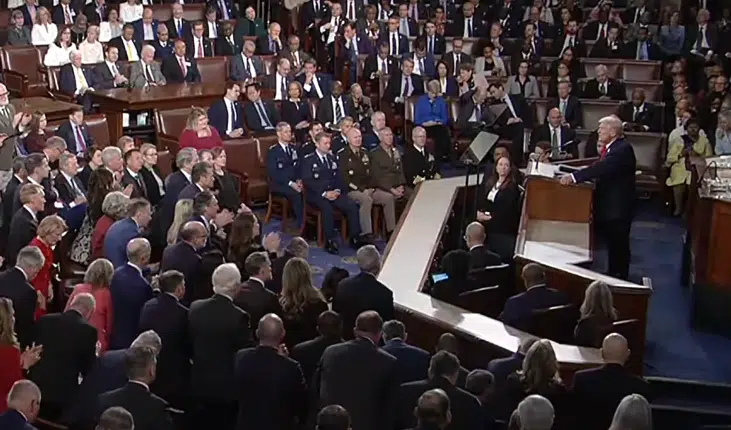
Good news for Vice President J.D. Vance, or whosoever runs as the Republican nominee in 2028: Only twice in American history has the White House incumbent party lost three elections in a row, and those years were 1844, 1848 and 1852, and then again in 1888, 1892 and 1896.
It wasn’t magic, nor was it coincidence.
In the 1840s, the U.S. experienced three consecutive recessions: one particularly deep depression from 1839 to 1843, another in 1845 to 1846 and yet another in 1847 to 1848.
And in the late 1880s and early 1890s, there were four consecutive recessions: one in 1887 to 1888, another in 1890 to 1891, yet another in 1893 and one more in 1896.
The result was the incumbents kept getting kicked out of office and ultimately led to the demise of the Whig Party. In 1840, the Whigs won. In 1844, the Democrats won. In 1848, the Whigs won. And in 1852, the Democrats won, and would hold until 1860, when the Republicans emerged and Abraham Lincoln was elected.
Later, in 1884, Grover Cleveland and Democrats won, in 1888, Benjamin Harrison and Republicans won, in 1892 Cleveland and Democrats won, and then Republicans won again in 1896 and 1900, breaking the cycle once again.
Bad news: The White House incumbent party has already lost two in a row following the Covid recession of 2020 and the high inflation of 2021 and 2022, leading to the ouster of Donald Trump and Republicans in 2020 and Joe Biden, Kamala Harris and Democrats in 2024.
Worse news: And there has never been a time when there were only two White House incumbent party ousters in a row. So far, when there were two, it led to a third consecutive defeat of the incumbents, undoubtedly owing to the instability of the economy during both periods.
All told, the years the incumbent party won after one term regardless of who the party’s nominee was were 1792, 1804, 1832, 1856, 1864, 1916, 1924, 1936, 1956, 1964, 1972, 1984, 1996, 2004 and 2012. The years the incumbent party lost after one term regardless of the nominee were 1828, 1844, 1848, 1852, 1888, 1892, 1896, 1980, 2020 and 2024.
Overall, the incumbents win 60 percent of the time after being in power for only one term, and lose 40 percent of the time.
Looking toward the modern examples, the Great Depression led to the collapse of Republicans in 1932 and the rise of Franklin Roosevelt and Democratic one party rule for almost 20 years.
The inflation of the 1970s gave way to Ronald Reagan in 1980. The 1990 to 1991 recession gave us Bill Clinton in 1992. The Great Recession gave Barack Obama a super majority after 2008 and then Arlen Specter’s defection. The Covid recession knocked Trump out in 2020 and then post-Covid inflation knocked Joe Biden and Kamala Harris out in 2024.
Of those, I think 1932 and 1980 were realigning elections, catapulting Democrats to the trifecta (very substantial) and later Republicans to the White House and Senate. These were such blowouts they shaped future electoral landscapes. Others led to gains that were short lived once midterms happened and then again when going for the third consecutive White House term.
In other words, besides incumbency, on balance, the economy is one of the single greatest predicters of how the next election is going to go.
Globally economic turmoil can also lead to even more extreme outcomes depending on how bad it gets. Famous historic examples are the collapse of Czarist Russia to communism as World War I bankrupted that country and led to starvation. Hyperinflation in Germany led the way for socialists and later the Nazis. At the time, the argument was about the failures of capitalism, liberalism and democracies.
Volatile economies lead to volatile politics. Today, economic turmoil is seeing the rise of Democratic Party socialists winning elections just this year alone, for example, in New York City and Seattle. Inflation is not only a majority killer, it’s an incubator of radicalism.
Year in and year out, voters when polled say it’s the economy that’s on their mind. Occasionally it’s a war or something else, but usually, almost always, it’s the economy that’s on their minds. And so will it be in 2028.
Rest assured, if the White House incumbents lose for a third time in a row, it will be because of the economy. And as President Trump and Vice President Vance can attest, a year can go by really fast.
2028 will be here before you know it — and so there’s actually very little time to address the lingering effects of Covid and the post-Covid inflation from a political standpoint. The American people crave economic stability, and they’ll keep cycling through presidents, Congresses and parties until they get it.
Looking around now, it’s important to point to areas of need — home prices stand out — because that can show where more policy is needed. 2026 will be a challenging year for Republicans regardless given the long odds the White House incumbents tend to face in the midterms and so the economy could come into play again.
Voters in polls are saying they’re still hurting from the inflation and the high cost of living. Those views can shift dramatically by 2028 but only if the numbers truly show real wages on the rise and the affordability gap shrinking. The trouble for Republicans will be that prices usually only come down in recessions, so if they’re planning on having one of those, it’s usually better they occur early in a term rather than later.
For the incumbents, President Trump and Vice President Vance, forecasting the economy is a lot like forecasting the weather. You’re hoping for sunny skies but sometimes it rains — and when it does you’ll never convince the voters they’re not wet.
Robert Romano is the Executive Director of Americans for Limited Government Foundation.






